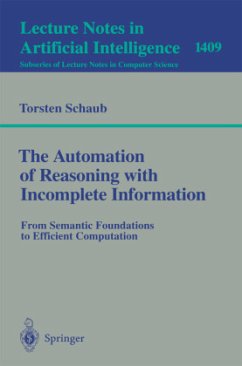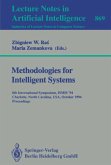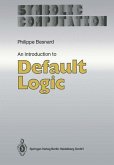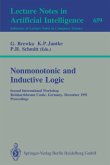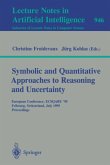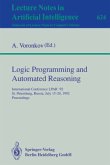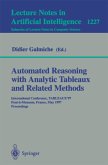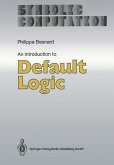Reasoning with incomplete information constitutes a major challenge for any intelligent system. In fact, we expect such systems not to become paralyzed by missing information but rather to arrive at plausible results by bridging the gaps in the information available.A versatile way of reasoning in the absence of information is to reason by default. This book aims at providing formal and practical means for automating reasoning with incomplete information by starting from the approach taken by the framework of default logic. For this endeavor, a bridge is spanned between formal semantics, over systems for default reasoning, to efficient implementation. TOC:Contents: Introduction; The Original Approach: Classical Default Logic; An Alternative Approach: Constrained Default Logic; Putting Default Logics into Perspective; A Context-Based Framework for Default Logics; Possible Worlds Semantics for Default Logics; Adding Specificity to Default Logics; Adding Lemma Handling to Default Logics; Query-Answering in Default Logics; A Prolog-Technology Compiler for Query-Answering; Conclusions and Perspectives; Appendix; References
Hinweis: Dieser Artikel kann nur an eine deutsche Lieferadresse ausgeliefert werden.
Hinweis: Dieser Artikel kann nur an eine deutsche Lieferadresse ausgeliefert werden.

